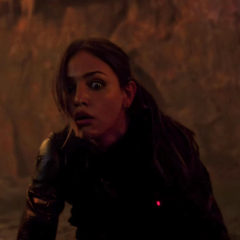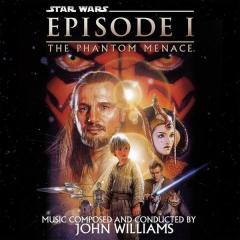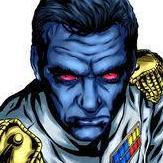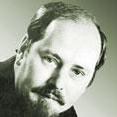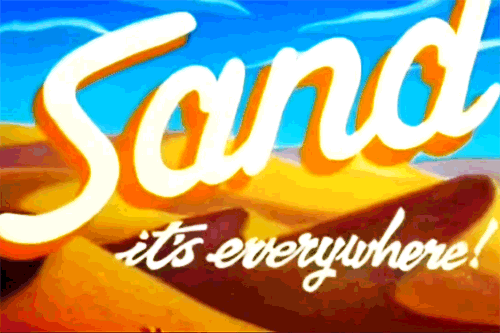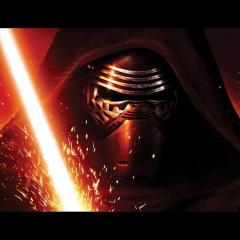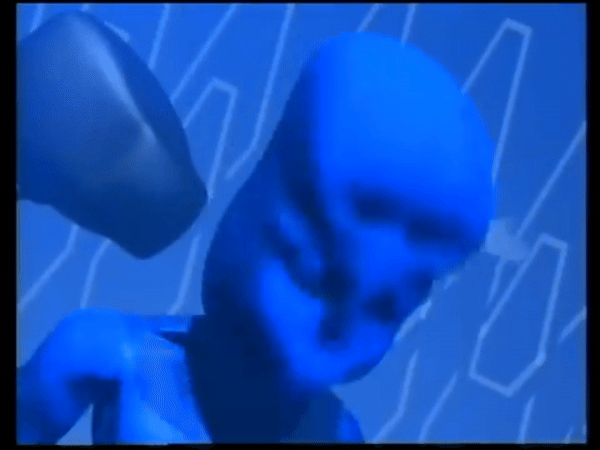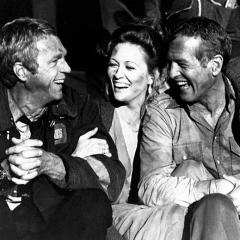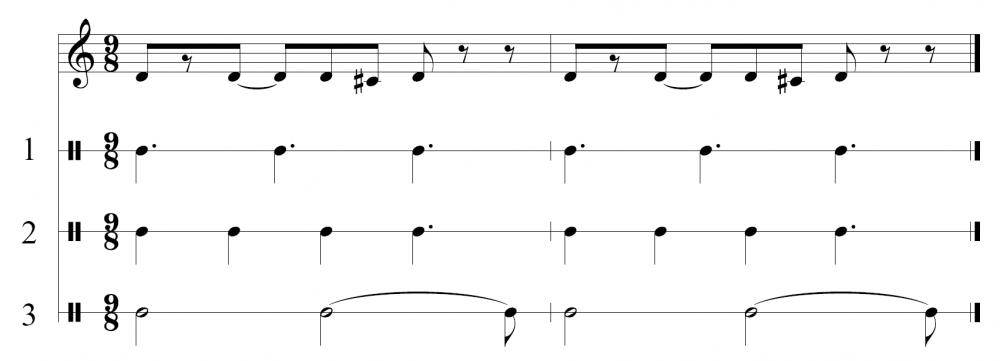Leaderboard
Popular Content
Showing content with the highest reputation on 27/05/18 in all areas
-
THE ADVENTURES OF HAN - 2018 John Williams theme for Solo: A Star Wars Story
Smeltington and 7 others reacted to Marcus for a topic
I think The Adventures of Han is a delightfully fresh and fun piece that achieves quite a lot of different things at once, and in subtle ways. Connective tissue and seemingly throwaway moments actually hearken back (or is that forward?) to a lot of the action writing in the OT, but just in quick glimpses/foreshadowings. It's a sort of in medio res piece, and might seem less tightly constructed than it actually is, which is a rather apt way of having form serve as a kind of characterization. The piece is structurally who Han is as a character: Someone who suddenly finds himself in the middle of a (mis)adventure. On the surface, it's music of impulse, whim; it's designed to feel rhapsodic, even though, as has been pointed out, it's actually a kind of rondo. On the other hand, it's Williams also showcasing his less romantic, more modern style. The motivics are more concerned with rhythmic twists than long-lined lyricism. It's a less heroic, more haphazardous take on the elements that constitute Luke's theme. A sort of curveball Luke in minor mode. It's clever and catchy, and bridges the old and the new in a very elegant way.8 points -
BTW I think Meet Han works far better as the opening track of the album with The Adventures of Han as the final track, a kind of cleaner, celebration of the main themes with a very golden-age opening fanfare. I love the low brass that starts Meet Han. A really moody intro to a SW score that doesn't attempt to match the Main Titles at all.7 points
-
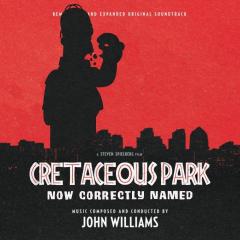
THE ADVENTURES OF HAN - 2018 John Williams theme for Solo: A Star Wars Story
Smeltington and 5 others reacted to rough cut for a topic
This isn't really related to the new theme, but rather how the old themes are incorporated in the movie. I don't really consider this spoiler territory, but just in case... Jeez, who'd have thought that about ol' JW... ?6 points -
I mean, for all we know, Williams saw Giacchino as a threat. He could see the potential for Giacchino to become the king of Star Wars, and so his direction to let new composers do their own thing is a vehicle to divide and conquer. Giacchino really was the next John Williams, until the last John Williams caught on!6 points
-
Having listened to the OST twice through now, this is easily the most successful JW score follow up by a different composer that I can recall. There are very few pastiche moments and Powell integrates JW's music very well with his own style. I'm not sure he succeeds 100% in his attempt to create the same kind of "flow" JW has in his music, but it's pretty close.6 points
-
So I've given this a handful of complete listens by now (although I haven't yet seen the film, and don't know when I will). It's a great score, at bottom. I agree with the naysayers here that the percussion loops are cringe-worthy on first listen. However, after more listens it feels completely natural. It just takes some getting used to. (A similar thing happened for me with Giacchino's Force theme variations in Rogue One -- initially the ending phrase sounded awful but over time I grew to love it.) Williams' concert piece is top notch. While the hero theme is perhaps a bit too close to Poe's theme, it does get some great variations (the high trumpet stuff is pretty fun and seems to have been designed with Powell in mind haha!) The searching theme is the real standout to me. It's an earworm and sounds like classic Williams. While it does get some good variations on album, I was a bit disappointed to find that the "You might want to buckle up, baby" cue from the pre-release clip doesn't seem to have been released (unless I'm missing it). The action writing here was indeed a bit overwhelming on first listen, but some of it really is terrific. E.g., "Corellia Chase" is quite swashbuckling at the beginning and contains a really fun brass segment: And then that transition to the main SW theme is sublime and reminds me of JW's little Anakin's theme fanfare at the end of the podrace. Even better are the rising fanfares that follow, suddenly quieting to a beautiful violin note that fades out. It all feels wildly romantic, auguring the romantic spirit that will be truly unleashed later in the score. Before that, however, "Flying with Chewie" gives us that classic Powell pastoral "into the sunset" spirit, actually reminding me just a bit of Thomas Newman's Saving Mr. Banks. Then the romanticism kicks in for "Lando's Closet," a cue that knocked my socks off when I first heard it. By now I'll admit it's starting to sound a little stale because of too many listens haha, but the theme is just downright gorgeous. It appears KM even gave it his highest compliment -- insisting that it must have been ghost-written by JW because it was so good. "Reminiscence Therapy" is, as as its title suggests, pretty heavy on JW references, but I'd say they're all well done. It's a very entertaining cue. In particular, Powell's use of Chewie's theme to lead into the SW main theme and rebel fanfare (as seen in the Falcon pre-release clip) is utterly sublime. @TGP's description of this spot as "balletic" was, in my view, spot on. The best part is Powell's end bit of the Chewie's theme statement -- the low string swell with the harp gliss as the Falcon sways wildly. It's stunningly graceful and romantic, or, as I might call it, "epic." Hard to put into words why I like it so much but it's just so perfect. The only problem with this cue is that everything that follows it on the album is pretty underwhelming in comparison. "Break Out" also has a pretty frickin' awesome verson of Chewie's theme -- and there are all sorts of great, non-thematic short musical moments in this score (e.g. the fanfare at the end of "Marauders Arrive"). It is a little disappointing, however, that Powell's terrific themes did not get too many statements (at least on album). Some of you are probably wondering whether I think this was better or worse than Rogue One. I'd probably say slightly better, although Powell did get to build his score around some great new Williams material (on which the score relies very heavily) so that doesn't necessarily mean that Powell did a "better job" than Giacchino. Certainly, I thought Rogue One was a very good score, and I think this is too. I'd probably prefer to have a totally new composer (e.g. JNH) take a stab at the next spin-off just for the sake of variety, but Powell's work here is definitely superb.5 points
-
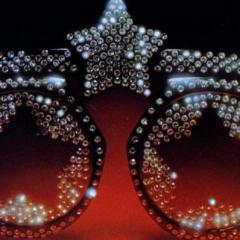
"Monsignor"
Jay and 3 others reacted to Nick Parker for a topic
True story: I bought this CD about ten years ago when I was in high school, and was listening to it on the school bus one day when a stoner kid sat down next to me. Even through my headphones I could hear thrashing music blaring out of his earbuds. He looked me and asked what I was listening to. I gave my headphones to him and played track 10, which begins with that beautiful piano solo. The kid absolutely loved it, and from that day we became very good acquaintances throughout the rest of high school. John Williams talks about the surprise of people still going to concerts to listen to Star Wars, but he never talks about random high school kids becoming friends over a Razzie nominated score!4 points -
One area I think JP deserves a lot of credit is for smartly re-using OT music. I like how deep he reached into ANH material, the humorous in-universe version of the Imperial March, and the elongated statements of the Rebel Fanfare/Falcon Theme. Fun stuff. And I'm really glad JP didn't touch the Force theme even once.3 points
-
-- anyway I really like this heroic statement of chewie's theme: i mean it becomes powell's trope he did it in Ferdinand (2017): Before that, he did it in Pan (2015): but before that, he did in Mars Needs Moms (2011): And before that in Horton Hears A Who (2008) 00:01 - 00:12 i know nothing about music theory, but what makes all of them feel the same? is it the progression, the layering, the tune? ._.3 points
-
This is exactly what I thought about the score. Your problems are identical to mine. The "RCP" percussion adds absolutely nothing (and as you said sounds like How to Train your Dragon) to what's going on and in fact covers up his work. I also thought the call backs were too heavy handed during the Kessel Run. I would have preferred an original piece specific to the Kessel Run similar to how Williams writes different pieces for action scenes. The percussion just annoys me and I'm a percussionist myself. As a good friend of mine said way back in the 7th grade, "Percussion is like salt, too much and you ruin the plate. Too little and the food needs a little spice. When you get it just right it's perfect", or something along those lines. All that being said, I thought the soundtrack was fantastic without the RCP percussion as it sounds distinctly Star Wars and retains the tone and style of fast moving brass and strings perfectly.3 points
-
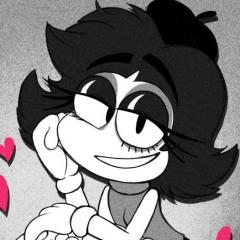
Solo: A Star Wars Story (Ron Howard 2018)
Mattris and 2 others reacted to Kasey Kockroach for a topic
5 out of 10, sure!3 points -
Broadcast starts in a couple of hours! http://classicalwcrb.org/post/film-night-boston-pops#stream/02 points
-
Your Father Would Be Proud raises the entire R1 score to a level of perfection for me. All the themes were already good, but YFWBP just put it over the top. Such an emotional piece. It could really stand on its own as a concert piece. Also, I have a thought. It seems to me that the Rebel Fanfare is now the Falcon's theme more than actually representing the Rebels. Which makes sense given its previous history. The Rebel Fanfare shows up in bits and pieces throughout ANH, but it really gets its due during TIE Fighter Attack, which, of course, heavily features the Falcon. It appears other places, but is most prominent in the OT when TIE Fighter Attack returns to score the Falcon's harrowing journey through the interior of the Death Star II. Its next prominent quote is in TFA, when it is boldly stated when the Falcon appears onscreen for the first time during "The Falcon." And now, here, during Solo, Powell quotes it all the time when they're in the Falcon. So what do we think? Is it the Falcon's theme now? It at least seems heavily associated with the Falcon at this point.2 points
-
2 points
-
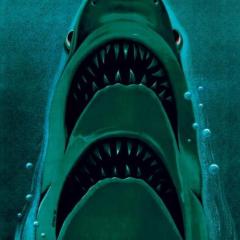
The Official James Horner Thread
Jurassic Shark and one other reacted to crocodile for a topic
I've yet to finish listening to this album. I remember putting it on in 1998. Think it's still on. Karol2 points -
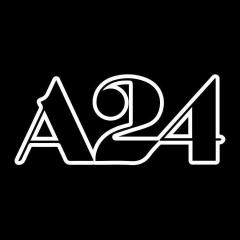
What Is The Last Film You Watched? (Older Films)
Kasey Kockroach and one other reacted to A24 for a topic
It's about how we sometimes make the wrong choices ...2 points -

The Rebellion is Reborn vs. The Adventures of Han
Josh500 and one other reacted to Kasey Kockroach for a topic
Adventures of Rebellion!2 points -
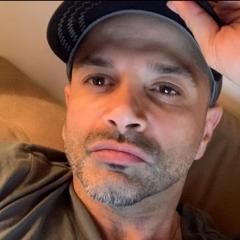
THE ADVENTURES OF HAN - 2018 John Williams theme for Solo: A Star Wars Story
Joni Wiljami and one other reacted to ocelot for a topic
I don’t believe he is questioning the writing, it’s the layering of those “synth” drums. There’s some lovely writing for sure in there and throughout the album. As to the above mentioned post and replies about the theme, sometimes the most difficult things to write WELL in music or art of any kind are the simple things. And you are left wondering, why didn’t I think of that?.... just saying2 points -
I wonder if what I perceive to be a thinner sound of Adventures of Han is intentional and meant to reflect some of the sound of ANH. The music itself is pretty standard modern JW both in terms of the theme and the rhythmic action stuff. The hero's theme has strong shades of Poe's Theme and the searching theme has the kind of constant forward progression of parts of Rey's theme. But the mix itself, or the orchestration, or both give me a hint of ANH.2 points
-
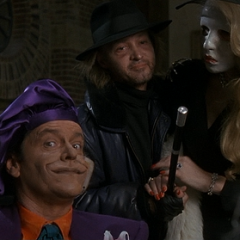
What Is The Last Score You Listened To? (older scores)
mrbellamy and one other reacted to Gruesome Son of a Bitch for a topic
Rabbit and Rogue was a surprise, to be sure. But, a welcome one. After years of forgettable pap from Elfman, he finally delivered something to confirm he was still alive. He's in there, somewhere. Get a medical capsule, immediately.2 points -

James Horner's TITANIC (2017 4CD expanded edition from La-La Land Records)
bollemanneke and one other reacted to Gruesome Son of a Bitch for a topic
I hope we all enjoy our time together with the expanded release. And God rest Horner's soul. What a great man.2 points -
Anyone who thinks it's easy to write a truly great cheesy power ballad, let me know when you've written a song as widely beloved and immortal as "Don't Stop Believin'"2 points
-

THE ADVENTURES OF HAN - 2018 John Williams theme for Solo: A Star Wars Story
crlbrg and one other reacted to Dixon Hill for a topic
Write about and discuss things that you don't do? No, anyone can and should do that, and to argue otherwise is indeed bullshit. But to make firm statements about the difficulty of the specifics of the craft and the skill required without hands on knowledge of it? That's what you want to avoid. That's what's disingenuous.2 points -
It’s a great lesson for young people in any situation. Stop copying. Whether it’s copying other people’s music, photos, drawings, programs, lifestyles, choices, opinions, just stop. Think for yourself. Learn from others and from the past, but don’t try to be others or relive the past. Heed Williams’ words. It won’t guarantee you’ll succeed and become John Williams. But it will guarantee that you will wake up every day with a hunger for life, whatever it throws at you. The worst thing you can do to your life is being dead inside.2 points
-
Oh, by the way, another quote from Powell on Williams' instructions (from the said interview): "Don't be so honourable to the material. Do your own thing. I'm interested to see what you'll do with it. I'm interested to see what you can add to it. The sounds I don't do, the things I don't do, the way I don't do it." Karol2 points
-
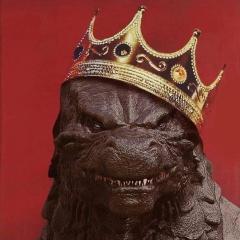
Solo: A Star Wars Story (Ron Howard 2018)
Holko and one other reacted to Unlucky Bastard for a topic
I found Anakin very realistic and relatable how he'd start sweating and stammering in front of a beautiful woman.2 points -
I thought the score was enjoyable in the film, but I fucking hated the synthy percussion. Powell, it is an SW film, not How to Train Your Dragon. And Powell lays on the Williams references a bit too thickly, especially during the Kessel run, where he jumps from "The Asteroid Field" to the Rebel fanfare and back again. But there are some really lovely quieter moments that channel Wiliams without quoting the themes. I need to see the movie again before I buy the soundtrack.2 points
-
It pleases me to no end that John Williams sees the need to release those who will follow him from the need to ape his style. Powell has succeeded at what he set out to do, and what Williams wanted him to do. This is a great Star Wars score, rooted in the franchise's rich musical tradition and yet different enough to help the franchise evolve. It's just right. It's not too far out. It keeps what works, sheds what's anachronistic, and brings just enough of individual voice to work and work well.2 points
-
THE ADVENTURES OF HAN - 2018 John Williams theme for Solo: A Star Wars Story
crlbrg and one other reacted to Joni Wiljami for a topic
I just love that trumpet version of that theme at 00:59. The chord progress, those maj7 chords😍2 points -
Something that I love about the "Searching" theme from TAOH is that it has great rhythmic flexibility. Consider these three different approaches of accentuating the notes in the melody: Pattern #1 is based on how the music is actually notated and conducted. It is also how JW introduces it for the first time in TAOH, from 0:37 (focus on the bass). Pattern #2 is the "naive" beat - it is what the naive listener would hear when listening to the melody on its own. Pattern #3 is a natural extension of #2 and is what I would call the "disfigured 2/2" where rather than 1:1 you get a 4:5 ratio between the beats. They are three different beat patterns yet they all work naturally with the melody. And you can easily create more, e.g. by removing the 2nd beat of pattern #1, or the third beat from pattern #2. In the same way that Han is searching for a sense of fulfillment in his soul, this theme is "searching" for a sense of rhythmic stability. And Powell does end up playing with some of these rhythms in the score, particularly in Corellia Chase. For instance, that awesome transition from 2:07 is to me just an exploitation of pattern 3: And what's more, Powell also exploits pattern #2 as a counter-beat in some of his cues, i.e. whenever the Searching theme is played as a counter-melody, by virtue of its implicit "naive" beat generation. For example, if you listen from 1:58, the mere inclusion of the Searching theme in the background (played by strings, accentuated by trumpets) adds another layer of rhythm to the music which is independent, by the way, of the underlying drum rhythm which, all things considered, goes something like : | U o o U U U U o o | ('U' indicates an accented note, 'o' is unaccented, '|' is a bar line. The important point here is that it is not | U o U o U U U o o |). In short, the Searching theme yields a whole plethora of rhythmic possibilities AS IT IS, which is atypical of the usual Williams theme. EDIT: Here's something else that's cool: Looking at pattern #2, you can see that the first 3 beats are identical in rhythm to the whole of pattern #1. That is, if you take the first three beats of pattern #2 and stretch them out 1.5x, to fill a whole 9/8 bar, you get pattern #1. Well, this is exactly how Powell transforms the Searching theme, at 2:24:2 points
-
The theme is cohesive as fuck. What on Earth are you dribbling about?2 points
-

The Official James Horner Thread
Unlucky Bastard and one other reacted to Gruesome Son of a Bitch for a topic
I honestly think I prefer him to Williams. Sorry. The JWFan card was surrendered years ago anyway.2 points -

Video Game Music
Jay reacted to Nick Parker for a topic
If you'll permit me, I'd like to share my first recordings I ever made, about five years ago. These were from a session I did with one of my best friends. We took a couple video game tunes we enjoyed and decided to do a free improvisation on them. Here's the first, from the NES game Startropics. It took us a little bit to warm up, so to speak, so I prefer it to start around this time. I might also recommend that you end at 6:57. I like the material that comes after, but I'm concerned it runs too long. EDIT: Crap, the time URL on the first video isn't embedding properly for some reason. In that case, please start at 3:38. And here's one from Ocarina of Time. These were fun to do, and I hope you enjoy these performances! (And now you know my dark secret...Nick Parker isn't my actual name....)1 point -
I stand corrected, filmmusic. More than rhapsodic in the strict sense, I was referring to free-form type of structures usually employed by JW when writing concert suites from film material, but you're definitely correct pointing out the rondo-like structure of the piece.1 point
-
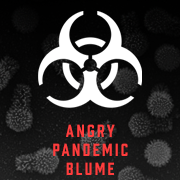
What was the last really quotable movie?
Gruesome Son of a Bitch reacted to BLUMENKOHL for a topic
The Star Wars Prequels.1 point

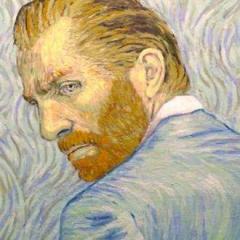

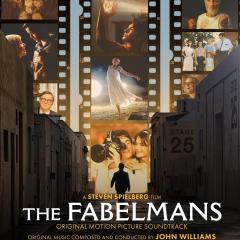
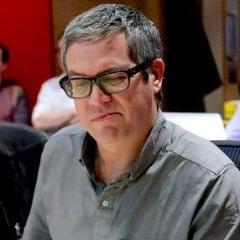
.thumb.jpeg.d6187d4954d11c35672223afaef6b220.jpeg)
